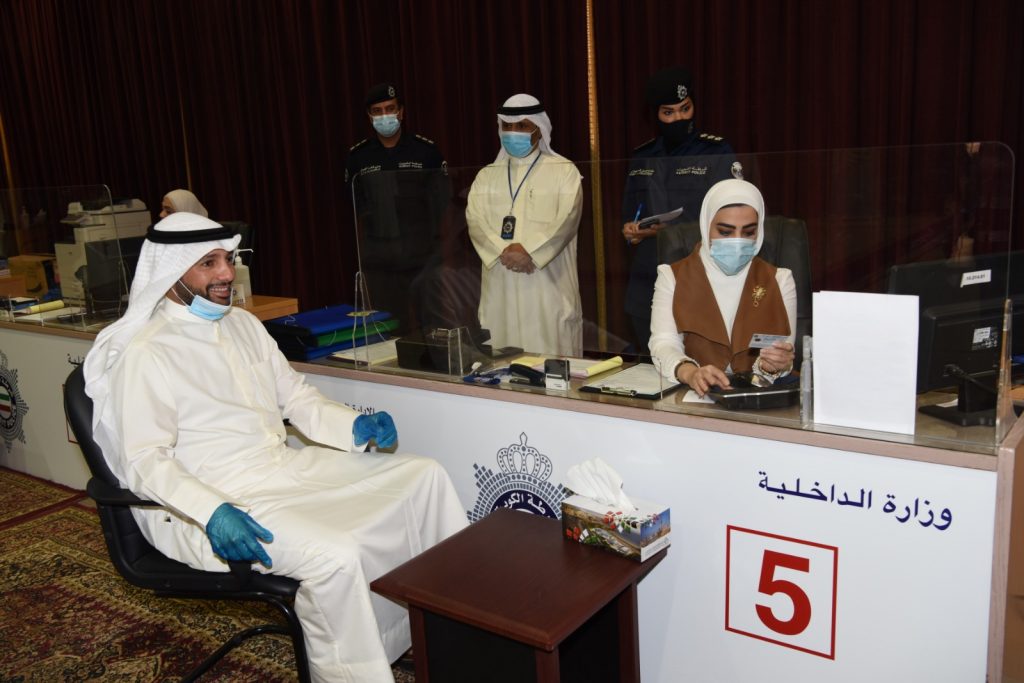02/11/2020
02/11/2020
KUWAIT CITY, Nov 2: A total of 32 citizens, including three women, registered on Monday to contest the parliamentary elections slated for Dec 5, 2020. By the end of registration period on Monday, the number of candidates reached 333 – 28 of whom are women.

The candidates who registered Monday included former Speaker of the National Assembly Marzouq Al-Ghanim. He will stand for elections in the Second Constituency. This is in addition to former MPs Khalid Al-Otaibi, Omar Al-Tabtabai’e and Farraj Zebn Al-Erbeid.
Eight candidates, including two women, applied for the First Constituency; while five men and one woman applied for the Second Constituency, four men in the Third Constituency, nine men in the Fourth Constituency and five men in the Fifth Constituency. On the other hand, Director of the Elections Registration Center Colonel Salah Al-Shatti disclosed that there will be 590 polling stations distributed in 102 schools. He said five schools will be allocated for tallying and announcement of election results. Only two days are left for citizens planning to contest the upcoming elections to file their candidacies as the deadline is on Nov 4, 2020.
Reviewed
The Public Prosecution has reviewed the case of 30 parliamentary candidates that held unauthorized primary elections and referred their file to the criminal court which will reach a verdict before the upcoming 2020 parliamentary elections, set to be held on Dec 5, Gulfnews.com reports quoting Al Qabas.
The candidates, running in the first, fourth and fifth electoral districts, are also being charged for violating COVID-19 health requirements which prohibit gathering of large crowds. A source told Al Qabas that the majority of the accused were released on bail set at KD 1,000.
The source pointed out that although informal elections have been held in the past, this year the consequence is different because of the COVID-19 pandemic and the breach of health rules. If the accused were to be convicted by the court, they will be unable to run for the upcoming elections and that everybody that participated, including those that voted during the unauthorized elections, will be referred to the judiciary, the source added.
Although the informal primary elections, otherwise known as tribal primaries, are illegal under Kuwaiti law, they are commonly held prior to a general election. The National Assembly passed a law in 1998 banning informal primary elections based on social affiliation. A new clause was added to Article 45 of the 1962 election law stating “It is illegal to organise or participate in primary elections, which take place informally before the set date of the general elections and is used to select one or more members of a certain class or sect.” Since the Kuwaiti political scene lacks political parties, tribes organise informal elections in order to rally their constituents behind a certain parliamentary candidate, who is usually from the same tribe.
By Saeed Mahmoud Saleh Arab Times Staff and Agencies


